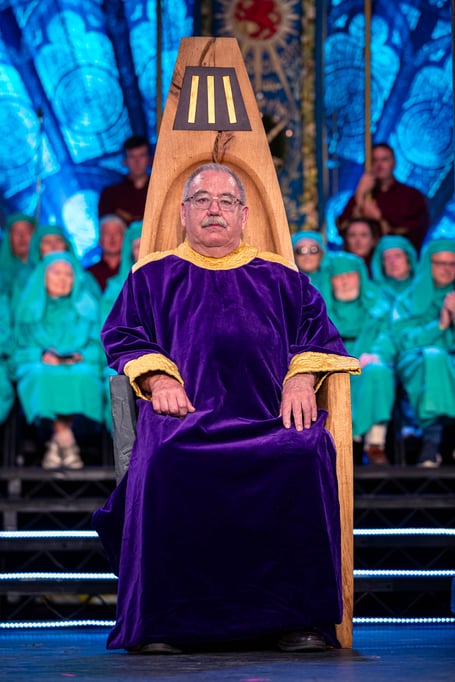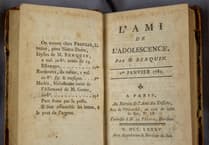One of Wales' most prominent poets has won the 2023 National Eisteddfod Chair - for the third time.
Alan Llwyd from Dolgellau has managed to win the 'double', namely the Chair and the Crown in the same year - twice - at Ruthin in 1973 and Cardigan in 1976.
He is the first poet since the relaxation of the 'twice only' rule to win the Chair for the third time. The Chair is presented for a poem or collection of poems in cynghanedd or strict metre, of no more than 250 lines, entitled 'Llif' (Flow). The judges are Karen Owen, Cathryn Charnell-White and Rhys Iorwerth. Delivering the adjudication on behalf of the judges, Karen Owen said: "The work of adjudicating this year's Chair competition was relatively easy, because there were only six entries vying for the Boduan Chair. To tell the truth, it was a surprise to us judges that so few applied, especially as the pandemic had delayed the competition for almost three years.
"Regardless, six poets sent in their work, and although the technical standard of the poets bodes well for the future, there is still room for them to think about other elements - such as structure, voice, and message - in order to create an elaborate and multi-layered piece.
"It was clear from the beginning that Llanw a Thrai is the best cynganeddwr of the competition. Personally, this work grew on me with each reading. This work is a very familiar story for Welsh-speaking Wales of our time, that of leaving a place before returning decades later full of guilty nostalgia.
"This poet, more than anyone else, had the clearest vision for his subject. This is also the poet who best succeeded in turning that vision into understandable, readable poetry that gives enjoyment. The structure of his ode is simple: a relatively old man returns to his childhood home. The tide of the sea and all the associated images then give him the opportunity to reflect on his lineage and his family, on succession, on what has been and what will be.
"The three of us are in complete agreement that Llanw a Thrai is the winning poet, and that he is fully worthy of the Chair and all the privileges and honours that belong to it."
Alan Llwyd was born in Dolgellau in 1948. He first lived in Llan Ffestiniog and then on a farm in Llyn. Later he studied Welsh at the university in Bangor. He worked in a bookshop in Bala before moving to Swansea in 1976, to work as an editor for Gwasg Christopher Davies. Between 1980 and 1982 he worked for the Welsh Joint Education Committee in Cardiff, and from 1982, he worked full-time for Cymdeithas Barddas. As a poet and writer, he has published over 80 books, including three complete collections of poems. It won the Nonfiction-Creative Book of the Year category in 2013 and 2020, and the Poetry Book of the Year category in 2019. In 1993, he won the BAFTA Cymru award for Best Film Script in Welsh, namely the script of the film Hedd Wyn. His latest collection of poems, Cyfnos, was published in February this year. He was awarded the degree of Doctor of Literature in 2012, and was appointed Professor in the Department of Welsh, University of Wales, Swansea, in 2013, for his service to Welsh literature. Alan lives in Morriston near Swansea and is married to Janice. The couple have two sons, Ioan and Dafydd, and grandfather to Ffion and Tristan.
Craftsman Stephen Faherty is responsible for creating the Chair, sponsored by the family of the late Dafydd Orwig, educator, pioneer, and former chair of Gwynedd County Council.
The Chair was made from a large piece of oak tree planted on the edge of Y Lon Goed over 200 years ago. The six-mile-long route was immortalised in the poem Eifionydd by R Williams Parry.
The strong winds of Storm Darwin blew the whole tree down in February 2014, and a piece was presented to the Eisteddfod by Eifion Williams, Tyddyn Heilyn, when he heard the festival was coming to the area.

.png?width=209&height=140&crop=209:145,smart&quality=75)



Comments
This article has no comments yet. Be the first to leave a comment.